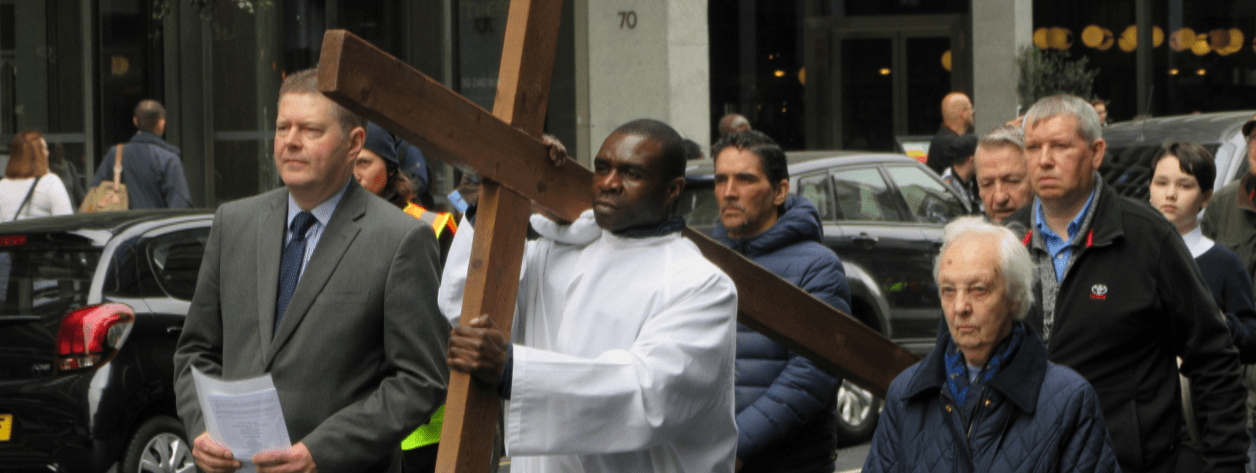By Jacinta Goode, Caritas East Anglia
In recent times I’ve been thinking about grief and loss, as I’m sure many of us have. For me, this has been both on a personal level and more recently, on a wider scale. Any one of us may have experienced the loss of a loved one and most of us probably have.
There are also, of course, many other types of grief. In these extraordinary times, we are witnessing – and perhaps experiencing – many types of loss: from the loss of freedom of movement which we have all had to cope with, to loss of contact with family and friends, the loss of a secure income and possibly even our home. As one psychiatrist put it, this is grieving on a global scale.
At any one time, there may be someone in our life who is in need of support through a time of grieving, but in these extraordinary times, everyone is grieving in one way or another – possibly in multiple ways – all at the same time. That requires awareness of others on an unprecedented scale. That, alongside greater self-awareness and gentleness. Everyone we know will need extra care in the way we speak to them, consider them, how we walk their journey with them and everyone is in need of extra prayerful support – including ourselves. We remember how, on arriving at his friend Lazarus’ tomb, ‘Jesus wept’ (Jn 11:35) so we know that Jesus also experienced grief and loss. We can be comforted in the knowledge that Jesus understands our feelings and that He will walk this journey with us.
So it was with interest that I attended a webinar on grieving, facilitated by Caritas Social Action Network (CSAN). Dr Mike Scanlan, a psychiatric nurse and mindfulness expert, spoke about mindfulness techniques which are helpful in recognising our feelings and how we can influence our own healing. Mike used five ideas to help us to gently give ourselves back control through a time of grieving.
He spoke first of the importance of acknowledging our feelings, and stressed that it is not useful to set goals. It’s not helpful, for example, to say: “You ought to be over this by now.”
What is more useful is, firstly, to acknowledge how we are feeling, and then to keep a grip on the things which really matter to us. Mike cited the importance of accepting an invitation from a friend or family member to a video call or a walk. If that person matters to us, then we surely matter to them, too. He then explained the BOLD process, which he suggested we use four or five times each day:
B – Take one breath
O – Observe yourself and ask, “How am I doing right now?” and notice your answer.
L – Lean in and ask: “Is how I am right now the me that I like and would like to be? Am I responding to situations and people around me in the way that I would like to?”
D – Make a Decision to respond in the way that I would like to, rather than the way in which I just did. Make a decision to change the who I want to be.
Secondly, Mike spoke about the importance of keeping in contact with the present moment. If we find ourselves leaning forwards into the unknown future, or backwards into things past, just be aware of this and gently bring ourselves back to the present moment and what is going on right now.
Realise that what is happening is important to the grieving process. It is OK – and in fact it’s important – to accept that this is going to be tough.
The other really important thing to remember is that all things pass, and this immediate feeling will also pass. We might recall the famous quote from Julian of Norwich, “All shall be well, and all manner of thing shall be well.”
Mike also spoke about how we have control over our thoughts. Many times, those who are grieving have unhelpful thoughts such as: “I could have done more” or “I should have done something differently.”
His suggestion is that we notice we are having these thoughts and then count to 10. He used the example of a scam text coming in from someone pretending to be our bank. Our instinctive response to these scams would be to say: “I’m not buying into that – I’m not going to click on the link, because I know that’s not real.” We can apply this kind of response to our unhelpful thoughts.
When we have negative thoughts, Mike suggests we look at the situation from outside of ourselves. If we take a step away and look at ourselves as another person would – or perhaps as God would – we will see a different perspective. When we do this, we can see that our perception of “I’m not good enough” is in fact just that: a perception. Whereas our actual self (which other people – and God – see) is OK.
By using these techniques, we can make a commitment to ourselves to be the best version of ‘me’ that we can. But let’s not be judgemental when we don’t live up to that ‘me’, when we’re not perfect. The most important thing is to be kind to both those around us and also to ourselves.
This blog post was first published by the Diocese of East Anglia. Any views expressed are those of the author.

